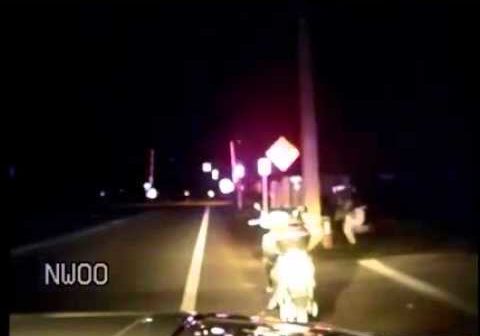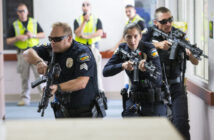The week before Christmas, a police officer almost died after being shot in the leg during a vehicle stop. It was another lesson in “Hands kill.”
Indian River County Deputy Christopher Lester experienced this first hand when a suspect riding a scooter sucker-punched him, knocking him to the ground. The suspect then pulled a gun from his waistband and shot. Luckily, the officer did not sustain life-threatening injuries. Deputy Lester managed to return fire, wounding the suspect, who later was caught.
The suspect in this case was a 52-year-old career criminal who had previously served time for attempted murder. This case was another graphic example of why police officers want to see your hands at all times.
No doubt the dash-cam video is being shown in police briefing rooms across the country — once again reinforcing the “hands kill” mantra.
Yes, police officers are a bit edgy at times.
Every police recruit in every police academy in the country is indoctrinated with “hands kill.” From the time you set foot in the door until you hit the streets and in the field-training program, you are instructed to watch people’s hands.
This isn’t the first video officers have seen this year.
In July, a Las Vegas officer pulled over an SUV only to contact an agitated driver. After arguing with the officer, the driver grabs a gun hidden under a blanket on the passenger seat. The suspect shoots, wounding a follow-up officer in the neck. The officer returns fire, killing the suspect.
In January, the Flagstaff Police Department released body cam footage of an officer-involved shooting. Officer Tyler Stewart is speaking with a seemingly calm suspect about a domestic violence incident. When the officer asks to check his pockets, the suspect pulls out a gun, killing the officer. He then takes the officer’s firearm and kills himself.
As part of ongoing training, police officers will watch and learn from these videos.
The priority is making sure everyone stays alive.
I am certain the average person finds it unsettling when they are contacted by a police officer — especially when the officer asks or orders you to keep your hands where the officer can see them.
You’re probably thinking, “I’m not a criminal!” Your frustration level rises and you might be thinking the officer’s paranoia is over the top.
Our own reporter Jaimee Lynn Fletcher recently went through role-playing scenario training with the Westminster PD. After seeing these videos, she commented, “It makes it so clear why officers are extra cautious when they make car or pedestrian stops and why they may order you to show your hands.”
So if officers seem a bit tense when they contact you, remember they are always expecting the worse. It’s best if you remain calm and do what you’re asked.
For the thousands of police officers who serve, the greatest priority is to go home at the end of their shift. Who can blame them for that?
Joe is a retired Anaheim Police Department captain. You can reach him at jvargas@behindthebadgeoc.com.
 Behind the Badge
Behind the Badge



